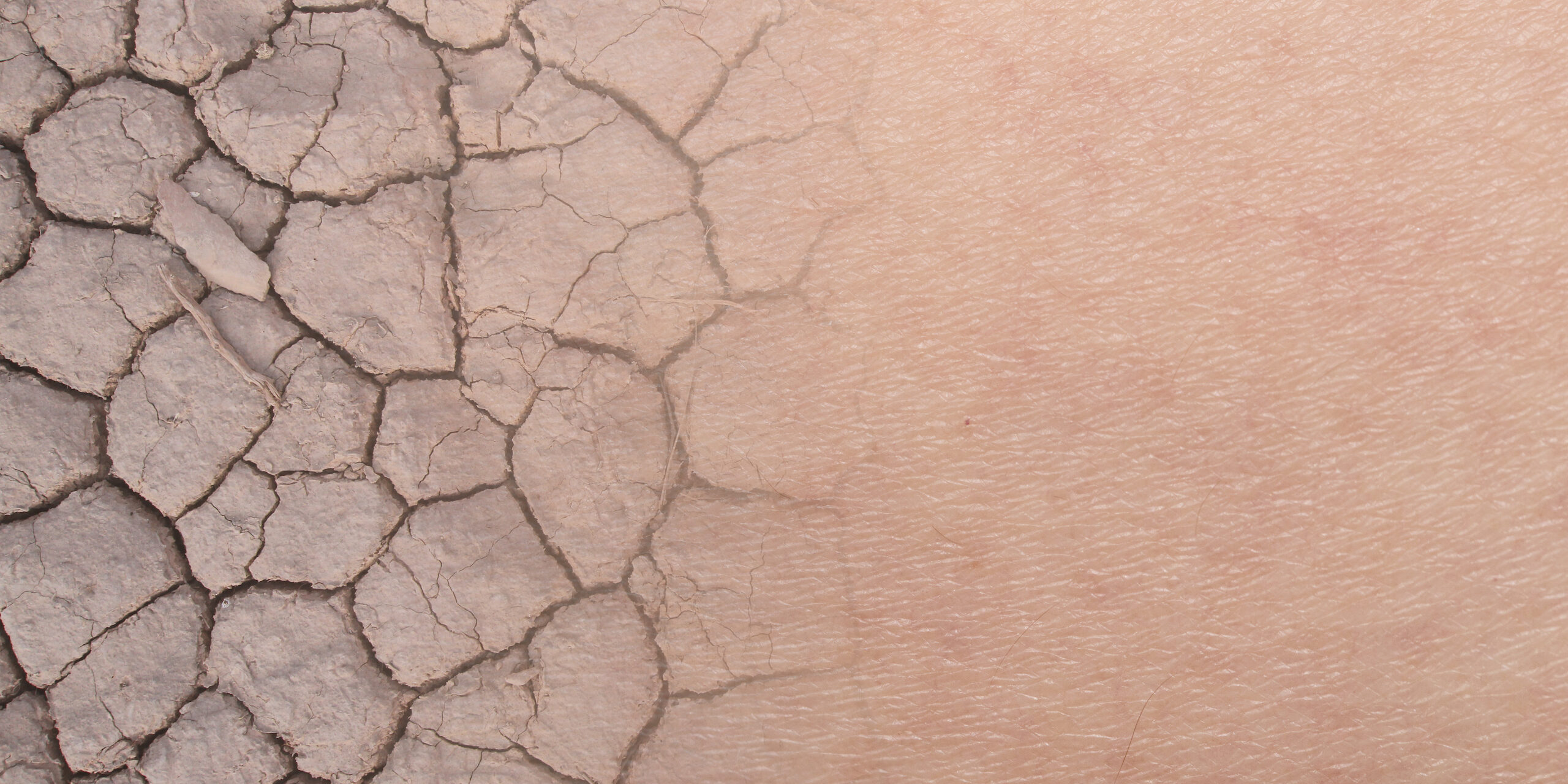Your skin may be trying to tell you something.
From sweating too much to drinking too much caffeine, it’s easy to lose more water than we take in. When we become dehydrated, so does our skin. Dehydrated skin often feels itchy or dull, with more noticeable fine lines and wrinkles. You may also develop dark under-eye circles, sunken eyes, or other unwanted issues.
Many people assume that dehydrated skin and dry skin are one and the same, especially when that itchy feeling begins – but they aren’t. The skin care experts at The Derm are here to explain the differences between dehydrated skin and dry skin, how to test if your skin is dehydrated, and why it’s important to seek the right treatment.
Identifying dehydrated skin vs. dry skin
Unlike dehydrated skin, which is a skin condition, dry skin is actually considered a skin type. Most of us are born with normal, dry, or oily skin (or some combination of the three), although our skin type can change with age, environment, or season (hello, Chicago wind!).
Dehydrated skin lacks enough water, while dry skin lacks enough natural oils. If the sebaceous glands in your skin don’t produce enough natural oils, you likely need to use moisturizing products to properly hydrate your skin and restore the outer layer. Washing too frequently can also strip away your skin’s natural oils.
Common signs of dry skin include:
- Redness
- Irritation
- White flakes
- A scaly appearance
However, common signs of dehydrated skin include:
- Itchiness
- A dull, uneven complexion
- Dark under-eye circles (frequently described as “shadows” under your eyes or around your nose)
- Sunken eyes
- An increase in fine lines and wrinkles
If any signs of dehydrated skin are accompanied by extreme thirst, dry mouth, weakness, dizziness, fatigue, or dark-colored urine, you could be severely dehydrated. If so, get medical treatment right away.
How to test if your skin is dehydrated
Still unsure if you have dehydrated or dry skin? Schedule an appointment at The Derm.
You can also perform a pinch test at home. Take a small portion of the skin around your cheek area and squeeze it lightly. If your skin begins to wrinkle or doesn’t bounce back after you let go, it may be dehydrated.
Treating dehydration and dryness
Dehydrated skin
Unlike dry skin, dehydrated skin is treatable with diet and lifestyle changes. Hydration is key!
It begins by drinking plenty of water. Start with the tried-but-true standard of eight glasses per day. However, you may need to drink more based on your body weight and/or activity level – ask your doctor to recommend a target amount.
Other ways to treat dehydrated skin include:
- Drinking less coffee, soda, and other caffeinated drinks (caffeine increases urine production, making you more susceptible to dehydration)
- Drinking less alcohol (alcohol increases your dehydration risk as well)
- Eating more water-rich vegetables and fruits like celery and watermelon
- Not smoking
- Getting enough sleep
- Exercising regularly (don’t forget to rehydrate during and after your workouts!)
If your dehydrated skin does not improve after making the above changes, you might have dry skin instead.
Dry skin
Dry skin is more difficult to treat than dehydrated skin, especially during cold Illinois winters. While proper hydration is great for your health, it doesn’t do anything for dry skin.
Instead, your skin care team at The Derm can recommend a moisturizer with the right blend of active ingredients for you (such as ceramides, lactic acid, or glycerol). Depending on the severity of your dry skin, you may need a prescription-strength moisturizer. We can also treat any underlying skin condition that is causing your skin to dry, such as eczema, psoriasis, or atopic dermatitis.
Other ways to treat dry skin include:
- Limiting showers and baths to 10 minutes or less (use warm water instead of hot)
- Using moisturizer immediately after washing
- Adding extra moisture to your home with a humidifier (especially during the winter months)
- Using soaps and detergents that are “fragrance-free” (rather than “unscented,” which may still contain chemicals that irritate dry skin)
Choosing the right skin treatment
After following the recommendations listed above, your skin should start looking and feeling better. But if you have dehydrated skin and unknowingly use a product designed for dry skin – or vice versa – you might not see any improvement at all, or your skin could get worse.
It’s time to end the dehydrated vs. dry skin debate and find out for sure. One of the board-certified dermatologists at The Derm can carefully examine your skin and create a personalized treatment plan that’s right for you.
With three convenient locations in Glenview, Park Ridge, and Wilmette, The Derm is dedicated to providing exceptional skin care for all. Schedule an appointment with us today!







